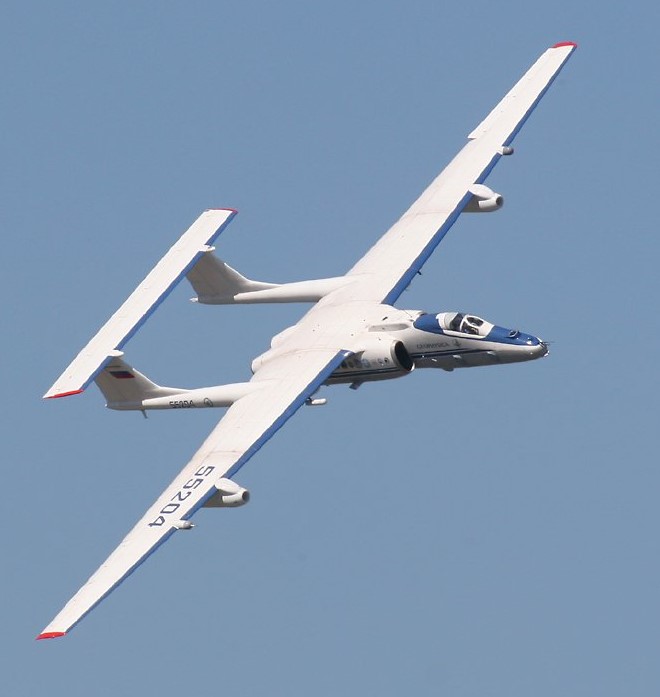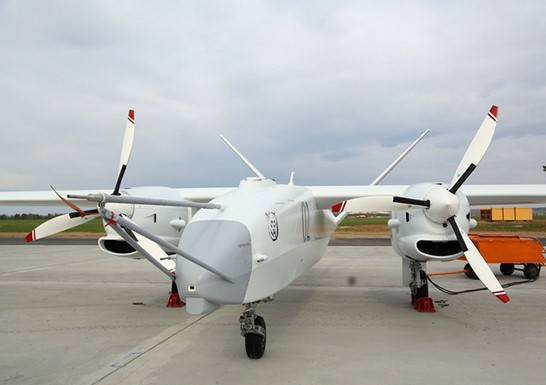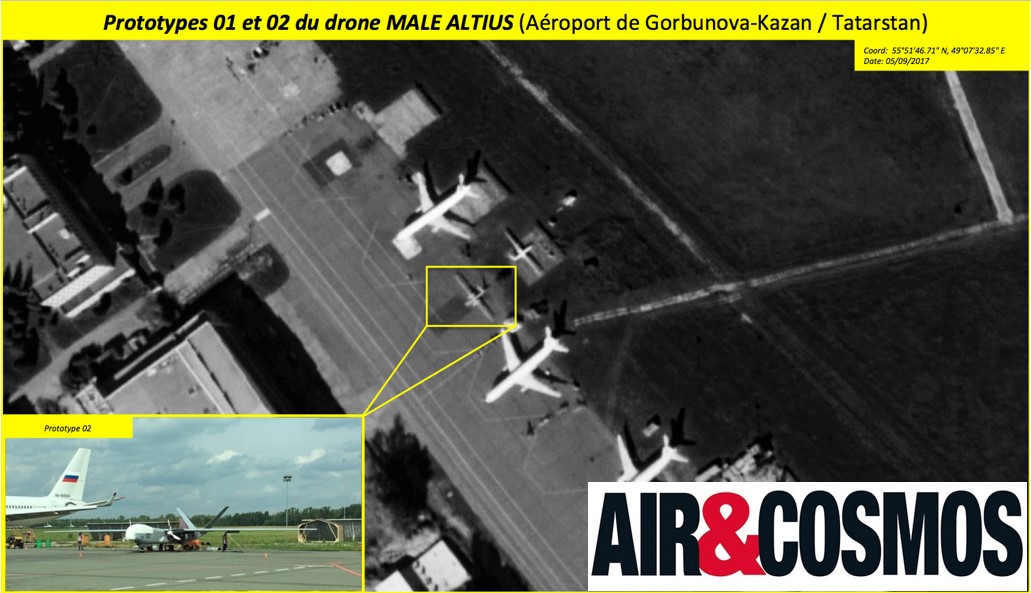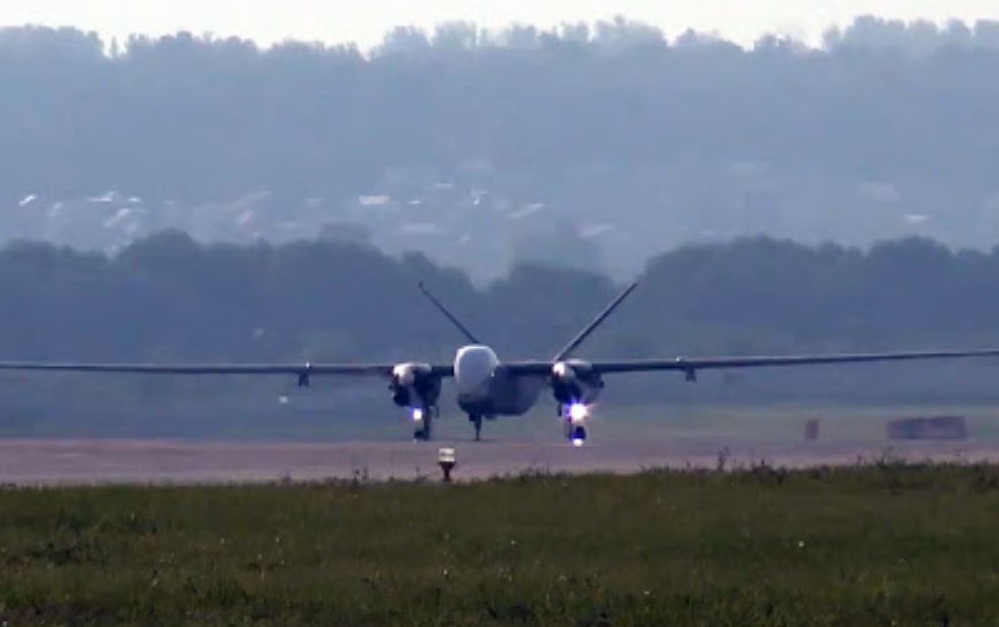While the Eurodrone program is weakened, the distribution of a document issued by the government of the Republic of Tatarstan attests that the Russian Ministry of Defense has mandated the UZGA factory in Kazan to launch production of its MALE Altius-RU UAV. A cruise missile-armed aircraft that aims at some of the reconnaissance capabilities of the only strategic drone currently in service, the RQ-4 Global Hawk.
Between the Heron TP and the Global Hawk
UZGA is a production center known in the world of civil aviation and UAVs, since it has produced under license the IAI Searcher UAV, renamed Forpost. Simonov Design Bureau, another entity also located in Kazan, has been behind the development of the Altius UAV since 2011, as part of the Altair program to evaluate several prototypes. This program had many ups and downs in 2018 following a case of embezzlement by the director of Simonov. But the Altius finally won the day because of its extraordinary capabilities, and especially because of the help provided by two other design offices, Kronstadt and EMZ. While Kronstadt brought its knowledge as integrator of the systems deployed on the Orion tactical UAV (ISR, designation, data links, ground stations, mission system, Satcom, automatic landing, weapons system, etc.), EMZ is none other than the Miassichtchev office, which has specialized in high-altitude flight since the 1950s. This office, headed by a former director of TsAGI (the Russian Onera), has carried out several experimental projects such as the M-60 nuclear-powered bomber, the cockpit of the Buran shuttle, or the Russian response to the American U-2 reconnaissance aircraft, the M-55 "Mystic-B". An aircraft that has accumulated records in the upper atmosphere, including a flight at 21360 m in September 1993. On the Altius, EMZ would have intervened on the optimization of the lift, the resistance of the structure, and the distribution of loads (avionics, sensors) as well as their protection. If the Altius is often compared in Russia to the American HALE UAV RQ-4 Global Hawk because of its dimensions with a wingspan of 28.5m, a payload capacity of 2 T, a ceiling located between 12,000 and 15,000 m depending on the engine, and a range of 10,000 km. But the RQ-4 reaches an altitude of 18,200 m and a radius of 22,000 km. This remains however 5 times higher than the Reaper deployed in several European armies, and beyond the Israeli TP Heron. On the other hand, propelled by two 500 hp engines, like the RQ-4, it would have a flight autonomy of up to 48 hours and an empty weight of 6 tons. This would not only allow it to deliver an armed version of a quantity of ammunition equivalent to 2 T, it would also be able to carry sensors in reconnaissance version with performances similar to those of intelligence satellites (EO/IR, Sigint, SAR). But with here a persistence on zone, for the designation of targets, without comparison especially over urban areas. Let us note that a Patmar version would also be planned to carry out oceanic surveillance. The Altius therefore seems, at least on paper, to be the most ambitious Male UAV on the market.


Armament
If the first rolling tests took place in 2016, it is in August 2019 that the aircraft in a not definitive version (version U) made its first flight. Its disappearance from all military demonstrations seems to be explained by the fact that the evolution of the platform was becoming more and more sensitive. And in fact, in February 2020, the Altius started surface attack tests with the KTRV GROM E2 guided gliding bomb, with a range of 65 km and a payload of 450 kg. The Altius could thus carry not only weapons dedicated to UAVs, but also those intended for combat aircraft. Such as the GROM E1 cruise missile, which would have a range of 10 to 120 km, and the Kh-35 anti-ship missile in Uran version, with a range of 250 km and designed to neutralize ships of more than 5000 tons. Ammunition is also available for the S-70 Okhotnik and the Su-57 Felon. For the moment the number of units ordered is still unknown, but the end user of the first batch could be a unit deployed in Syria. A country used since the beginning of the conflict to test the new equipment.


Deployment in Syria ?
Indeed, before being deployed last October in the Russian forces, the tactical drone + Orion, comparable to the Israeli Hermes 450, trained for more than a year in the Syrian theater with aerial bombs of 20 to 50 kg (KAB-20, KAV-50, FAV-50), a small guided missile Kh-50, and a guided gliding bomb Urav-50. And it seems precisely that a production version of the Altius-RU was assembled last year for "evaluation" on the ground, before the first examples are deployed in the coming months. While the Altius will be able to capitalize on the sensors built by KRET for the Orion, the challenge for the Altius is to have a resilient data link against adverse jamming devices, since it is equipped with a SATCOM GLONASS. In any event, Russian forces, long absent from the UAV world, have managed in less than a decade to cover all segments, from Elsron mini UAVs for special forces, to kamikaze, tactical, VTOL, and Male UAVs. But above all, they have a range of platforms and equipment that are totally sovereign, with an ecosystem concentrated around the city of Kazan. Thus while Joe Biden has decided on a moratorium on Reaper drone strikes in the Middle East, Moscow is preparing to radicalize a diametrically opposed posture.
For more information, please refer to Air&Cosmos issue 2703 on the Russian Army 2020 exhibition, as well as the article published in DSI magazine issue 145 entitled "Russian UAV Operations in Syria".




Découvrez cet article sur Air&Cosmos

